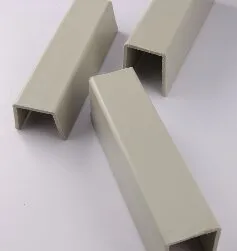Dic . 13, 2024 20:07 Back to list
pp board
The Evolution and Impact of PP Board in Modern Applications
In recent years, the demand for lightweight, durable, and environmentally friendly materials has surged across various industries. Among these materials, polypropylene (PP) board has emerged as a highly versatile solution that meets the diverse needs of manufacturers, designers, and consumers alike. This article delves into the properties, applications, and sustainable aspects of PP board, highlighting its significance in contemporary society.
Understanding PP Board
PP board is a type of thermoplastic polymer made from polypropylene resin. It is renowned for its lightweight nature, exceptional chemical resistance, and high-impact strength. Available in various thicknesses and colors, PP boards can be easily fabricated using common techniques such as cutting, welding, and printing. The adaptability of PP board makes it suitable for an extensive range of applications, from packaging to construction.
One of the distinguishing features of PP board is its ability to withstand various environmental conditions. It is impervious to moisture, acids, and alkalis, making it an ideal choice for outdoor use as well as in harsh industrial settings. Additionally, PP board is not prone to rot, corrosion, or mildew, which ensures a longer lifespan and lower maintenance costs for users.
Applications of PP Board
The versatility of PP board has led to its integration into various industries. In the packaging sector, PP boards are used to create durable and lightweight packaging solutions. They can protect products during transport, reducing the risk of damage and waste. Moreover, businesses are increasingly opting for PP boards due to their recyclability, aligning with global sustainability goals.
In the construction industry, PP boards serve multiple functions, including wall partitions, signage, and formwork. Their lightweight nature allows for easy handling and installation, thereby enhancing efficiency on construction sites. Additionally, because they do not absorb water, PP boards help maintain structural integrity, even in high-humidity environments.
The creative sector also benefits from PP boards' excellent printability and design flexibilities. They are commonly used in the production of displays, promotional materials, and artistic installations. Graphic designers appreciate PP boards for their ability to hold vibrant colors and sharp images, making them a popular choice for marketing and advertising.
pp board

Environmental Considerations
One of the most significant advantages of PP board is its environmental impact. As the world increasingly focuses on sustainable practices, PP board stands out due to its recyclability and reduced environmental footprint. Unlike many traditional materials, PP board can be recycled numerous times without losing its properties, making it a sustainable alternative in various applications.
Moreover, the production of PP board typically requires less energy compared to other materials, contributing to lower greenhouse gas emissions. As more companies prioritize eco-friendly solutions, the demand for PP board is expected to grow, promoting a circular economy.
Challenges and Future Prospects
Although PP board boasts numerous benefits, it is not without challenges. The material's susceptibility to UV degradation can limit its exterior applications unless properly treated. Additionally, while PP board is recyclable, the infrastructure for recycling thermoplastics can vary by region, posing challenges for effective waste management.
Looking ahead, innovation in the field of PP board production is likely to address these issues. Advances in additive technologies and surface treatments could enhance UV resistance and expand the range of applications for PP boards. Furthermore, educational initiatives to raise awareness about recycling processes can ensure that PP boards are disposed of responsibly.
Conclusion
In summary, the evolution of PP board represents a significant advancement in material science, offering numerous benefits across various industries. Its lightweight, durable, and recyclable characteristics make it an attractive choice for environmentally conscious consumers and companies. As technology continues to evolve, PP board is poised to play an even more prominent role in shaping sustainable solutions for the future, reaffirming its position as a vital material in modern applications.
-
Durable Glossy PVC Rigid Sheet | Premium High-Shine Panels
NewsAug.26,2025
-
Durable PP Rigid Sheet: Lightweight, Chemical Resistant Solutions
NewsAug.21,2025
-
PVC Grey Sheet for Extraction: Chemical Resistant & Durable
NewsAug.19,2025
-
Durable PVC Pipe Fittings for Plumbing & Irrigation Needs
NewsAug.18,2025
-
HDPE Steel Belt Reinforced Spiral Corrugated Pipe | High Strength
NewsAug.17,2025
-
HDPE Pipe Fittings: Durable, Leak-Proof Solutions
NewsAug.16,2025

